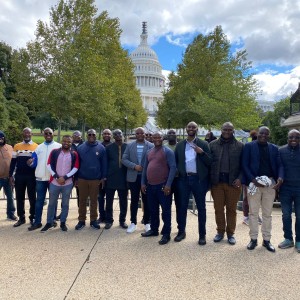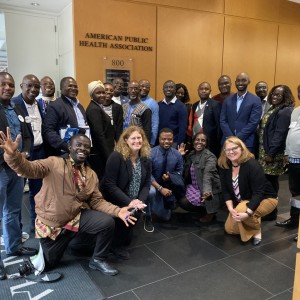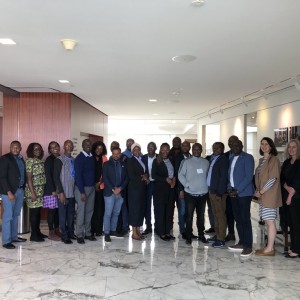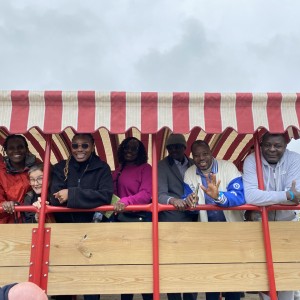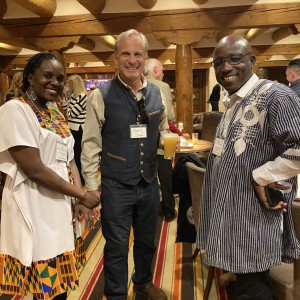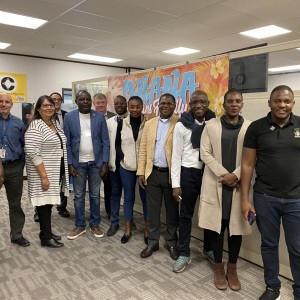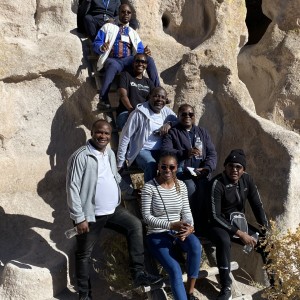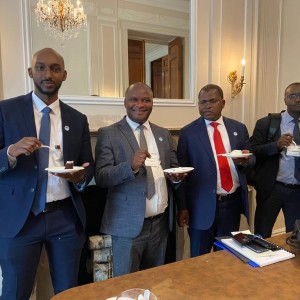Global Public Health Challenges: A Regional Project for Africa
The health of communities, families and individuals across the United States – and the world – is often deeply interwoven into social, economic, political, and environmental factors that vary from place to place. Understanding how to affect these conditions, and their relationship to the health of the people they impact, is critical to understanding public health as a practice, and was a central principle in the mid-October International Visitor Leadership Program, “Global Public Health Challenges” a Regional Project for Africa. Through convening 20 clinicians and public health professionals from across Africa, the project aimed to demonstrate advances and persistent challenges in the areas of health science, healthcare systems, healthcare policymaking, and clinical research, answering the fundamental question of how public health professionals can best, most equitably serve their communities. It did so through meetings with hospitals and clinicians, researchers, and scientists, as well as government officials and non-profit leaders.
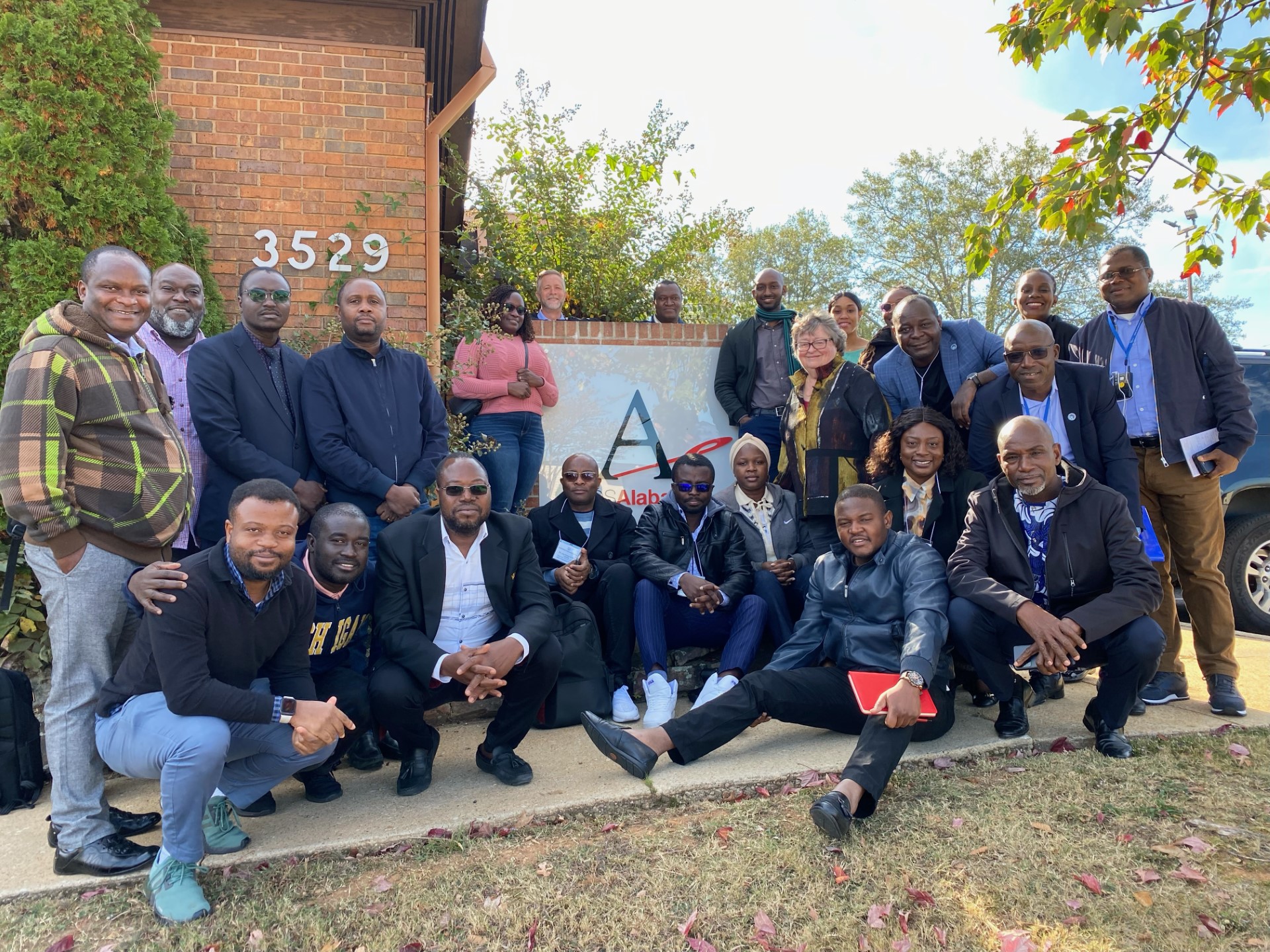
Project Objectives
- Understand federal public health and infectious disease policy and programs and the role of research and best practices to treat infectious diseases;
- Explore public-private partnerships and collaboration in the medical field to combat infectious diseases, including media campaigns for public awareness;
- Examine the role of NGOs in preventing and treating infectious diseases; and
- Explore the role of community-based clinics and outreach health centers’ preparations for responding to outbreaks of disease and view the measures in place to control infectious diseases in hospitals.
Project Design
Over the course of their 3-week program, visitors made stops at the following destinations, where meetings were focused on specific aspects of larger project themes. The group visited four cities as a collective, and three cities in sub-group city splits to engage with local resources and see how public health questions are addressed in different parts of the United States.
Washington, DC: Opening conversations in Washington, DC were critical to understanding how the United States’ decentralized political system impacts public health care structures across the country. A federalism briefing and keynote address on the U.S. healthcare system were foundational in seeing the strengths and weaknesses of America’s public health system. A stop at the U.S. Department of State also illuminated the U.S.’s international public health work, particularly on the reduction of HIV/AIDs.
Seattle, Washington: Seattle illuminated the various types of organizations at work in addressing public health issues, domestically and internationally. Visits to the Bill and Melinda Gates Foundation offered views on how a global philanthropic entity works on tuberculosis, while a stop at the Indigenous Wellness Institute highlighted the diversity of domestic communities who are supported by non-profit organizations. For the group, a particularly interesting takeaway in Seattle was the emphasis on the importance of promoting good governance in developing countries – and many organizations’ determination to focus on that issue.
Group 1, Kalamazoo, Michigan: With a focus on innovation and inclusion, a stop in Kalamazoo emphasized both the importance of mentorship in incubating new ideas for health entrepreneurship, as well as the importance of family wellness clinics in supporting vulnerable communities at the local level.
Group 2, Iowa City, Iowa: Visitors made connections with rural health care professionals and were impressed by the number and coordination of volunteers who were playing essential roles at the Mobile Iowa University Clinic. Their intimate knowledge of their community’s vulnerabilities and challenges made patient care more responsive and efficient.
Group 3, Santa Fe, New Mexico: Meetings with local public health officials provided an in-depth look at plans for health care specific to Native Americans in northern New Mexico, while also illuminating local challenges.
Birmingham, Alabama: A visit to the American South was an appreciated stop on this program, combining important perspectives on providing healthcare in underfunded, underserved communities. Highlighted topics included how AIDS is being addressed in the state, particularly among LGBTQ+ and BIPOC communities. Meetings in Montgomery, AL also provided state-level public policy perspectives on the healthcare legislation-making process.
Tampa, Florida: To close out the program, Tampa provided visitors with perspectives on pediatric care, international infectious disease research, and combatting health disinformation. At the Johns Hopkins All Children’s Hospital, visitors met with the hospital director, observed clinical rounds, and observed innovations in case. Lastly, a workshop with the Poynter Institute’s Al Tompkins provided visitors with the awareness and tools needed to identify and counter health mis- and disinformation, including how to harness AI for good.
Results
|
Visitors collectively visited 9 American cities and communities across 5 geographic regions.
|
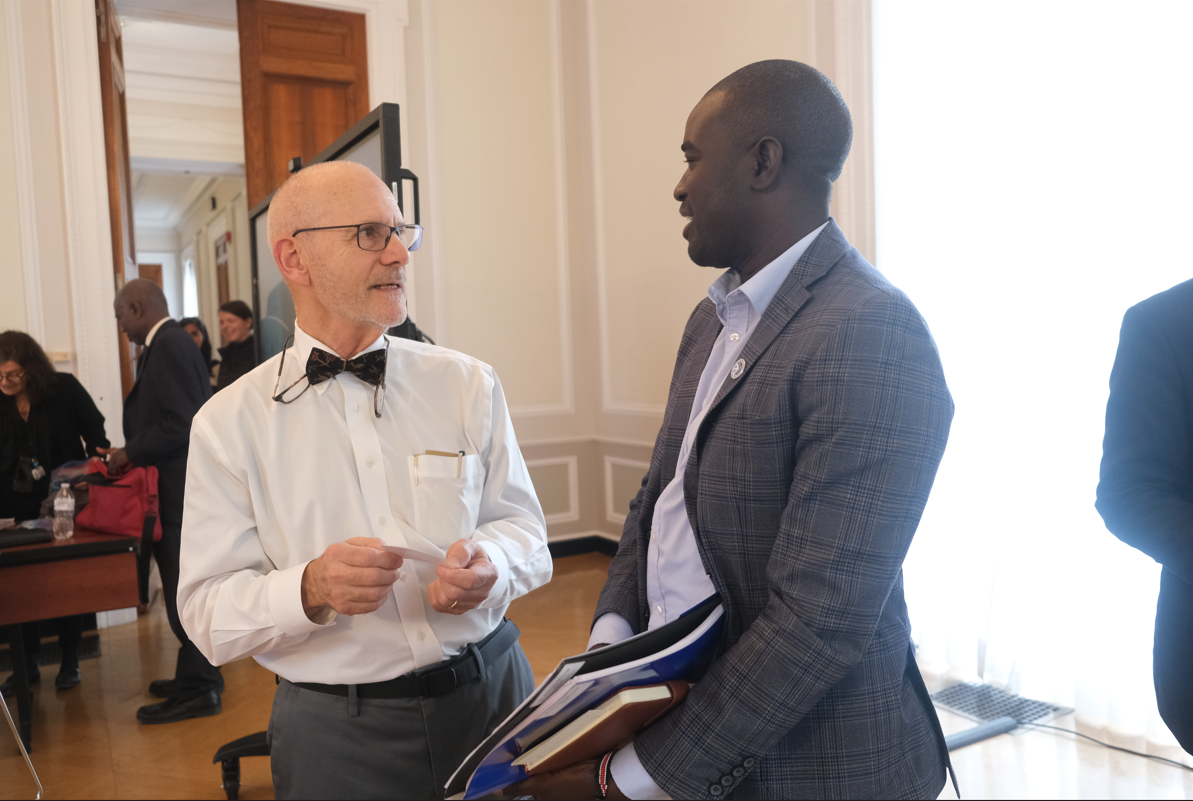
|
|
Visitors collectively connected with 81+ public health professionals.
|
|
|
Visitors partook in 8 home hospitalities and networking receptions with local hosts across the U.S.
|
Next Steps
Equipped with a new network and knowledge, visitors aim to undertake the following steps post-program:
- Create training programs to equip healthcare workers with the knowledge to fight mis- and disinformation using digital tools like AI and social media.
- Collaborate with American resources on building capacity for measurement, monitoring and evaluation programs across countries in Africa.
- Address the spread of HIV pre-exposure prophylaxis among vulnerable urban populations.
- Establish support programs for women and girls who have HIV/AIDs.
- Nurture the network of health professionals established by this IVLP to aid in further professional collaboration and innovation.
“The world needs America, and America needs the world.” - Dr. Annet Alenyo, Technical Advisor, Emergency Services, Ministry of Health, Uganda
Project summary
| Global Public Health Challenges: A Regional Project for Africa | |
|---|---|
| Number of Visitors: | 20 |
| Regions: | Africa, Western Hemisphere |
| Countries: | Benin, Burkina Faso, Burundi, Democratic Republic of the Congo, Côte d’Ivoire, Gabon, Ghana, Equatorial Guinea, Haiti, Kenya, Liberia, Mali, Namibia, Republic of Congo, Rwanda, Uganda, Zambia |
| Impact Areas: | Global Health |
| Program Areas: | Global Leadership |
